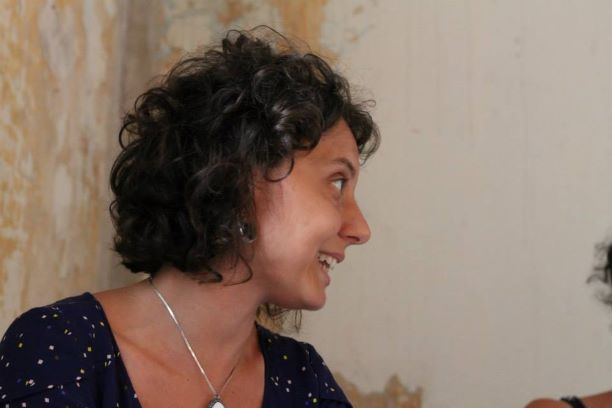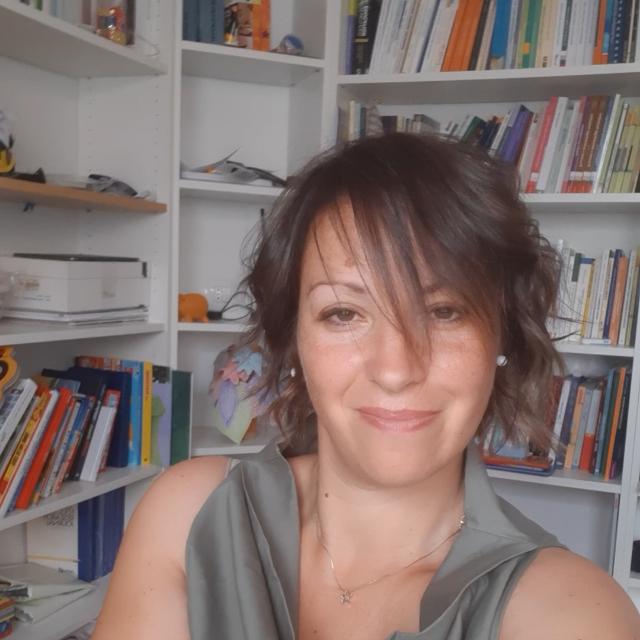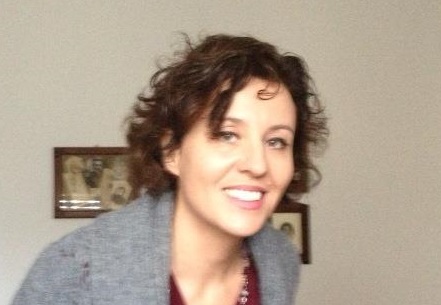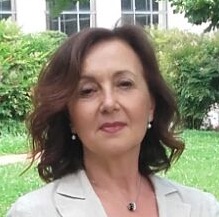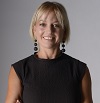Studying at the University of Verona
Here you can find information on the organisational aspects of the Programme, lecture timetables, learning activities and useful contact details for your time at the University, from enrolment to graduation.
Academic calendar
The academic calendar shows the deadlines and scheduled events that are relevant to students, teaching and technical-administrative staff of the University. Public holidays and University closures are also indicated. The academic year normally begins on 1 October each year and ends on 30 September of the following year.
Course calendar
The Academic Calendar sets out the degree programme lecture and exam timetables, as well as the relevant university closure dates..
| Period | From | To |
|---|---|---|
| Sem. 1A | Sep 24, 2018 | Nov 10, 2018 |
| Sem. 1B | Nov 19, 2018 | Jan 12, 2019 |
| Sem. 2A | Feb 18, 2019 | Mar 30, 2019 |
| Sem. 2B | Apr 8, 2019 | Jun 1, 2019 |
| Session | From | To |
|---|---|---|
| Sessione Invernale | Jan 14, 2019 | Feb 16, 2019 |
| Sessione Estiva (Gli esami sono sospesi durante la Sessione di laurea) | Jun 3, 2019 | Jul 27, 2019 |
| Sessione Autunnale | Aug 26, 2019 | Sep 21, 2019 |
| Session | From | To |
|---|---|---|
| Sessione Estiva | Jul 8, 2019 | Jul 13, 2019 |
| Sessione Autunnale | Nov 4, 2019 | Nov 9, 2019 |
| Sessione Invernale | Mar 30, 2020 | Apr 4, 2020 |
| Period | From | To |
|---|---|---|
| Festa di Ognissanti | Nov 1, 2018 | Nov 1, 2018 |
| Festa dell’Immacolata | Dec 8, 2018 | Dec 8, 2018 |
| Vacanze di Natale | Dec 22, 2018 | Jan 6, 2019 |
| Vacanze di Pasqua | Apr 19, 2019 | Apr 23, 2019 |
| Festa della liberazione | Apr 25, 2019 | Apr 25, 2019 |
| Festa del lavoro | May 1, 2019 | May 1, 2019 |
| Festa del Santo Patrono - S. Zeno | May 21, 2019 | May 21, 2019 |
| Festa della Repubblica | Jun 2, 2019 | Jun 2, 2019 |
| Vacanze Estive | Aug 12, 2019 | Aug 17, 2019 |
Exam calendar
Exam dates and rounds are managed by the relevant Humanistic Studies Teaching and Student Services Unit.
To view all the exam sessions available, please use the Exam dashboard on ESSE3.
If you forgot your login details or have problems logging in, please contact the relevant IT HelpDesk, or check the login details recovery web page.
Should you have any doubts or questions, please check the Enrollment FAQs
Academic staff
 marialivia.alga@univr.it
marialivia.alga@univr.it
 erika.branchini@univr.it; erika.branchini@gmail.com
erika.branchini@univr.it; erika.branchini@gmail.com
 simona.carta@univr.it
simona.carta@univr.it
 marialuisa.costantino@univr.it
marialuisa.costantino@univr.it
 donato.desilvestri@univr.it
donato.desilvestri@univr.it
 laura.fontecedro@univr.it
laura.fontecedro@univr.it
Ganzerla Luca Giovanni Michelangelo
 lucagiovanni.ganzerla@univr.it
lucagiovanni.ganzerla@univr.it
 licia.landi@univr.it
licia.landi@univr.it

Migliorati Lorenzo
 lorenzo.migliorati@univr.it
lorenzo.migliorati@univr.it
 045802 8135
045802 8135
 maria.mori@univr.it
maria.mori@univr.it
 luca.odini@univr.it
luca.odini@univr.it
 alessandro.ongaro@univr.it
alessandro.ongaro@univr.it
 pieralberto.porcedducilione@univr.it; pierre_pordd@yahoo.it
pieralberto.porcedducilione@univr.it; pierre_pordd@yahoo.it
 045 8028732
045 8028732
 sara.riggio@gmail.com
sara.riggio@gmail.com
 mirela.tingire@univr.it
mirela.tingire@univr.it
 rosanna.vit@univr.it
rosanna.vit@univr.it
 barbara.zoccatelli@unitn.it
barbara.zoccatelli@unitn.it
Study Plan
The Study Plan includes all modules, teaching and learning activities that each student will need to undertake during their time at the University.
Please select your Study Plan based on your enrollment year.
1° Year
| Modules | Credits | TAF | SSD |
|---|
2° Year activated in the A.Y. 2019/2020
| Modules | Credits | TAF | SSD |
|---|
3° Year activated in the A.Y. 2020/2021
| Modules | Credits | TAF | SSD |
|---|
| Modules | Credits | TAF | SSD |
|---|
| Modules | Credits | TAF | SSD |
|---|
| Modules | Credits | TAF | SSD |
|---|
| Modules | Credits | TAF | SSD |
|---|
Legend | Type of training activity (TTA)
TAF (Type of Educational Activity) All courses and activities are classified into different types of educational activities, indicated by a letter.
Speech and language disorders, learning disabilities and psychological development (2020/2021)
Teaching code
4S001300
Teacher
Coordinator
Credits
9
Language
Italian
Scientific Disciplinary Sector (SSD)
M-PSI/04 - DEVELOPMENTAL AND EDUCATIONAL PSYCHOLOGY
Period
Sem. 2A, Sem. 2B
Learning outcomes
Conoscere e comprendere le problematiche di base di natura teorica, epistemologica e metodologica, relative ai processi di sviluppo tipico, a rischio e atipico del linguaggio, della comunicazione e dell’apprendimento, con particolare riferimento all'analisi delle componenti contestuali ed educative. Considerare la relazione tra fattori personali e caratteristiche del contesto (fattori familiari, sociali, culturali) per conoscere e comprendere le differenze individuali nei processi di sviluppo del linguaggio e dell'apprendimento e per individuare specifici fattori di protezione e indici di rischio precoci. Conoscere e comprendere le problematiche metodologiche in ambito psicologico, con particolare riferimento alle procedure osservative per la valutazione degli aspetti linguistico-comunicativi e dell’apprendimento e per la progettazione educativa in diversi contesti. Scegliere ed utilizzare le metodologie più adatte per la progettazione nei diversi contesti educativi, con particolare attenzione ai/alle disturbi/difficoltà di linguaggio e di apprendimento, nell’ottica della promozione di benessere e inclusione. Scegliere ed utilizzare le metodologie più adatte per la progettazione nei diversi contesti educativi, con particolare attenzione ai/alle disturbi/difficoltà di linguaggio e di apprendimento, nell’ottica della promozione di benessere e inclusione. Applicare le conoscenze acquisite per progettare in un’ottica di prevenzione e di individuazione precoce di indicatori di rischio, per favorire i processi di integrazione e partecipazione sociale, mediati in particolare dai fattori linguistico-comunicativi. Integrare le diverse conoscenze acquisite, per progettare e realizzare progetti educativi focalizzati in particolare sull'ambito linguistico-comunicativo e rivolti ai singoli, ai gruppi e/o ai servizi, per favorire la realizzazione di contesti educativi inclusivi.
Program
1) Main theoretical models of language development, learning and communication processes.
2) Individual, cognitive, relational, socio-emotional, motivational factors in the development of the child's language and learning
3) Inclusive perspective of developmental disorders and in particular language and learning disorders (Law 104/92, Act 170/2010 and BES Legislation 12/2012).
4) Language delays and disorders: early indicators, differential diagnosis and evolutionary prognosis. Observational procedures in family and educational contexts.
Role of family, educators and clinicians in the promotion and rehabilitation of language development.
6) Characteristics of DSA and subtypologies. Recent regulations and guidelines on diagnosis, rehabilitation and educational design.
Diagnosis according to the bio-psycho-social approach.
7) Relationship between delays and speech disorders and learning difficulties/disorders.
8) Communication and learning in intellectual disability, autism spectrum disorders and attention disorders.
9) Educational design elements with network interventions to support families and children with difficulties and/or disorders of language, communication and learning development.
| Author | Title | Publishing house | Year | ISBN | Notes |
|---|---|---|---|---|---|
| Cornoldi, C. | Le difficoltà di apprendimento a scuola (Edizione 3) | Bologna: Il mulino | 2013 | ||
| Vicari, S. & Caselli, M.C. | Neuropsicologia dell'età evolutiva | Bologna: Il Mulino | 2017 | (solo parte seconda e cap. X e XI). | |
| Zanobini, M. & Usai, M.C. | Psicologia della disabilità e dei disturbi dello sviluppo (Edizione 8) | Milano: Franco Angeli | 2011 | (esclusi cap. 3, 4, 5, 11). |
Examination Methods
Goals and content:
Demonstration of: understanding the main theoretical-methodological references in the field of the psychology of language development and learning in the typical form and in the form related to difficulties and disorders; be able to apply knowledge and skills for educational design in inclusive mode; be able to present your arguments in appropriate language, identifying and using conceptual and methodological elements on their own; how to evaluate the case studies and experiences discussed flexibly, grasping the weight and role of family, environmental and individual factors.
How to ascertain:
A written part with open questions and a part of cross-test to be carried out in an hour of time.
Evaluation:
Open questions will be given a maximum score of 10/30.
The 20 cross-test tests will be awarded a score of 1/30 each, until they reach 20/30 that will add to the score obtained in the open written test.
There will be no difference between attending and non-attending students in terms of exam mode.
Type D and Type F activities
Modules not yet included
Career prospects
Module/Programme news
News for students
There you will find information, resources and services useful during your time at the University (Student’s exam record, your study plan on ESSE3, Distance Learning courses, university email account, office forms, administrative procedures, etc.). You can log into MyUnivr with your GIA login details: only in this way will you be able to receive notification of all the notices from your teachers and your secretariat via email and soon also via the Univr app.
Graduation
Documents
| Title | Info File |
|---|---|
|
|
pdf, it, 99 KB, 13/10/23 |
|
|
pdf, it, 101 KB, 10/04/24 |
List of theses and work experience proposals
| theses proposals | Research area |
|---|---|
| Ambienti e contesti di lavoro con minori | Various topics |
| Analisi dei personal network di sostegno | Various topics |
| comunicazioni relative alla tesi | Various topics |
| Il teatro come contesto educativo | Various topics |
| I processi di globalizzazione culturale nella società contemporanea | Various topics |
| La social network analysis applicata allo studio dei contesti educativi | Various topics |
| L'educatore ed i progetti europei | Various topics |
| L'impegno associativo in ambito educativo | Various topics |
| Politiche sociali e contesti educativi | Various topics |
| Progetti di collaborazione con le istituzioni scolastiche | Various topics |
| PROPOSTE TESI AMBITO GEOGRAFICO | Various topics |
| Scuola e capitale sociale | Various topics |
Linguistic training CLA
Gestione carriere
Student mentoring
Practical information for students
Documents
| Title | Info File |
|---|---|
|
|
pdf, it, 325 KB, 02/05/23 |
|
|
pdf, it, 212 KB, 02/05/23 |
|
|
pdf, it, 131 KB, 02/05/23 |
Stage e Tirocini
Le ulteriori attività formative (crediti F) sono interamente coperte dall’attività di tirocinio “indiretto” (1 cfu) da svolgersi nel secondo anno e di tirocinio “diretto” (14 cfu) da svolgersi presso enti convenzionati per un numero complessivo di 15 cfu (375 ore). Chi è iscritta/o al curriculum servizi per l’infanzia è tenuta/o a svolgere il tirocinio presso nidi e servizi per la prima infanzia per almeno il 50% delle ore.
Il tirocinio professionalizzante (375 ore, pari a 15 cfu), è obbligatorio sia nella sua forma diretta che indiretta.
Il tirocinio indiretto, della durata di 25 ore a frequenza obbligatoria al 75%, si svolge in Università per 20 ore e in forma di lavoro individuale per 5 ore e consiste in un accompagnamento iniziale delle/degli studenti da parte dei tutor attraverso un percorso formativo dotandoli di conoscenze e strumenti adeguati a osservare, comprendere e rielaborare criticamente l’esperienza di tirocinio nei servizi educativi e ad affrontare il tirocinio negli enti con metodo e consapevolezza. Il percorso, da attuare in gruppi da 20-25 persone sotto la supervisione di un tutor, risponde alle esigenze costantemente espresse sia dalle/dagli studenti stessi sia dalle parti sociali che dai referenti degli enti convenzionati.
Il tirocinio diretto si propone di raggiungere i seguenti obiettivi:
- fare esperienza diretta di attività professionali, che richiedono un livello di preparazione al lavoro educativo;
- approfondire in particolare il rapporto tra preparazione teorica, acquisita mediante lo studio, ed esperienza pratica, tra mondo del sapere e della cultura e mondo del lavoro e delle professioni;
Al termine del tirocinio diretto lo studente deve presentare una relazione scritta, nella modalità concordata con il tutor accademico.
Nuove Linee Guida per il tirocinio di Scienze dell'educazione.
- Tutte le informazioni in merito agli stage per futuri studenti sono disponibili alla pagina Stage e tirocini.
- Tutte le informazioni in merito agli stage per studenti iscritti sono pubblicate in MyUnivr - come fare per - stage e tirocini.
- Tutte le informazioni in merito agli stage per le aziende sono disponili alla pagina Stage e tirocini per azienze.
Documents
| Title | Info File |
|---|---|
|
|
pdf, it, 302 KB, 16/07/21 |
